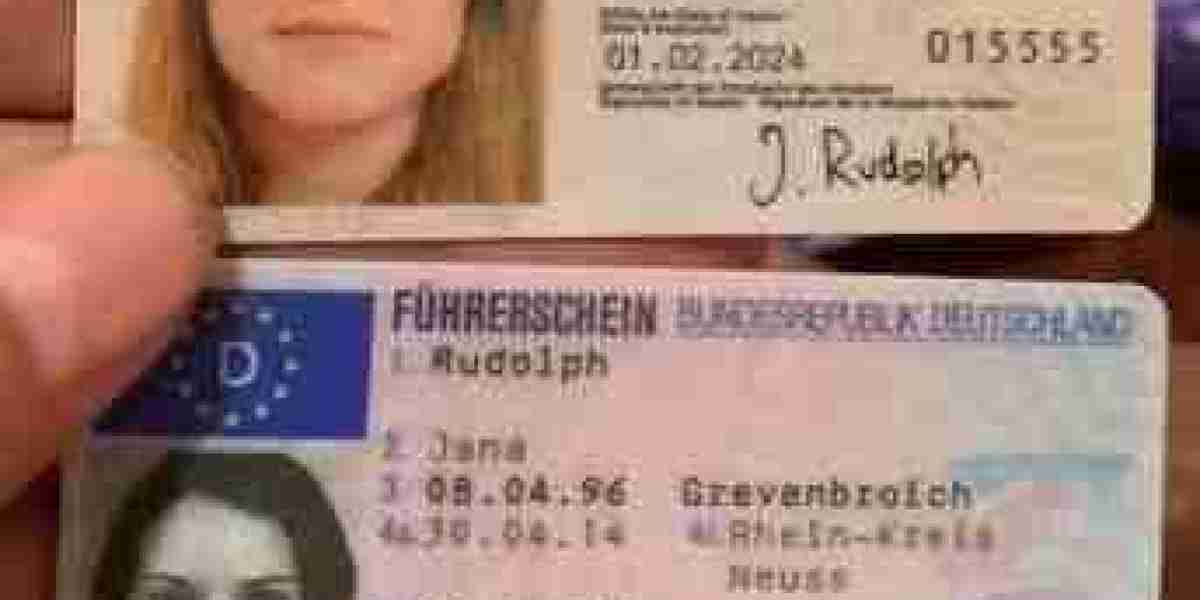Driving License Without a Test: Navigating the Unconventional Path
On the planet of driving, obtaining a license generally involves a rigorous procedure of theoretical and useful assessments. Nevertheless, there are distinct circumstances and jurisdictions where individuals may obtain a driving license without a conventional test. This article explores the numerous scenarios and legal frameworks that permit such an exception, providing a thorough summary of the conditions, treatments, and implications.
Intro
Driving is a basic ability that provides freedom and mobility. Throughout a lot of countries, obtaining a driver's license is a well-defined process that consists of both a theoretical and a dry run. These tests are created to ensure that drivers have a solid understanding of traffic laws and can operating a vehicle securely. However, there are circumstances where individuals can bypass these tests and still lawfully obtain a driver's license. This short article explores these exceptions, using insights into the legal and useful aspects.
Legal Frameworks and Exceptions
Conversion of Foreign Licenses
- General Rule: In numerous nations, individuals who hold a valid driving license from another nation can transform it to a local license without taking additional tests. This process is typically streamlined to accommodate global drivers.
- Conditions: The foreign license needs to be valid and provided by an acknowledged authority. Some jurisdictions might require a translation or a recommendation from a recognized organization.
- Examples:
- United States: Several states permit foreign drivers to convert their licenses through a basic application procedure.
- Canada: Provinces like Ontario and British Columbia have comparable provisions for foreign license holders.
- European Union: Member states often have reciprocal agreements to assist in the conversion procedure.
Unique Circumstances
- Medical Reasons: In some cases, people with medical conditions that impact their capability to take a test may be exempted from the practical exam. Nevertheless, they should go through a medical evaluation to ensure they can drive securely.
- Age and Experience: Some jurisdictions use exemptions to older individuals who have a long history of safe driving. These exemptions are often subject to stringent requirements, such as a clean driving record and a recommendation from a qualified driving trainer.
- Military Personnel: Military workers who have gone through comprehensive training and have a valid military driver's license may be qualified for a civilian license without additional screening. This is particularly common in the United States and the United Kingdom.
Heritage and Legacy
- Household Inheritance: In a few uncommon and specific jurisdictions, a driving license can be inherited from a close family member. This is more of a historic practice and is not widely recognized.
- Legacy Licenses: Some areas have legacy licenses that are released to individuals who can prove they have been driving for a significant duration, frequently years, without an official license. These licenses are usually granted on a case-by-case basis and might require documents of consistent and safe driving.
Treatment and Requirements
Application Process
- Documents: Applicants need to offer a legitimate foreign license, proof of house, and often a medical certificate.
- Application Form: Fill out the required application form, which can typically be found on the appropriate federal government website.
- Charges: Pay the needed charges for the conversion process. These costs differ by jurisdiction but are usually lower than the cost of a brand-new license.
Medical Evaluation
- Licensed Physician: Individuals with medical conditions should go through an evaluation by a certified physician or a designated physician.
- Report: The physician will supply a report confirming the person's ability to drive safely. This report is then submitted to the relevant authorities.
Proof of Experience
- Driving Record: Provide a driving record from the native land or another acknowledged authority.
- Suggestions: Submit recommendations from licensed driving instructors or other recognized entities.
Special Documentation
- Military ID: For military workers, provide a valid military ID and proof of completion of military driving training.
- Historical Documentation: For legacy licenses, provide historical documentation that shows consistent and safe driving over a considerable duration.
Ramifications and Considerations
Safety Concerns
- Danger Assessment: While these exceptions can be hassle-free, they also raise security concerns. Authorities should ensure that people who bypass the traditional testing procedure are still efficient in driving securely.
- Continuous Monitoring: Some jurisdictions may need periodic examinations or refresher courses for individuals who receive a license through these exceptions.
Fairness and Equity
- Level playing field: Allowing certain individuals to bypass the screening process can result in concerns of fairness and equity. It is essential that these exceptions are clearly defined and used regularly.
- Public Perception: The public might view these exceptions as a way to circumvent the system, which can affect rely on the licensing process.
Legal and führerschein Kaufen erfahrungen Regulatory Framework
- Stringent Criteria: Jurisdictions that offer these exceptions generally have rigorous requirements to avoid abuse. These requirements might include age limitations, medical examinations, and driving history.
- Regular Updates: Laws and guidelines surrounding these exceptions undergo change. Individuals must frequently inspect for updates to guarantee they meet the current requirements.
Frequently asked questions
Q: Can I convert my foreign driving license to a local one without taking a test?
- A: Yes, numerous nations allow foreign license holders to convert their licenses through a streamlined procedure. However, the specific requirements differ by jurisdiction. Examine the local department of automobile (DMV) or equivalent authority for in-depth information.
Q: Do I require to offer translation for my foreign license?
- A: In some cases, yes. If the license is not in the main language of the jurisdiction, a qualified translation might be needed. This can typically be acquired from an expert translation service.
Q: Can military personnel get a civilian driver's license without taking a test?
- A: Military workers who have actually completed substantial training and hold a valid military license might be eligible for a civilian license without additional screening. They should supply evidence of their military service and training.
Q: What if I have a medical condition that impacts my capability to take a test?
- A: Individuals with medical conditions may be excused from the practical test if they can offer a medical report confirming their capability to drive securely. Consult a licensed physician and the regional DMV for guidance.
Q: Are legacy driving licenses still provided in contemporary times?
- A: Legacy driving licenses are an unusual and historical practice. While some areas may still provide them, they are generally approved on a case-by-case basis and require significant evidence of consistent and safe driving.
Q: Can I acquire a driving license from a family member?
- A: Inheritance of driving licenses is not a common practice and is only acknowledged in a few particular jurisdictions. Seek advice from the local DMV to learn more.
While the standard procedure of acquiring a driving license includes strenuous theoretical and dry runs, there are distinct scenarios where individuals can legally obtain a license without these tests. These exceptions, such as the conversion of foreign licenses, unique medical considerations, and military service, are designed to accommodate particular requirements and ensure that the driving population stays safe and well-regulated. For those who meet the criteria, these alternatives can provide a streamlined and effective path to acquiring a driver's license. Nevertheless, it is vital to understand the specific requirements and implications to guarantee a smooth and certified procedure.
Bottom Line to Remember
- Conversion of Foreign Licenses: Often requires a valid foreign license, proof of residence, and often a medical evaluation.
- Unique Circumstances: Medical reasons, age and experience, and military service can result in exceptions.
- Heritage and Legacy: Rare practices that might still exist in some jurisdictions.
- Ramifications: Safety, fairness, and legal consistency are critical considerations.
- Frequently asked questions: Address common questions and offer clear assistance.
By understanding these exceptions and the procedures involved, individuals can navigate the unconventional path to acquiring a driving license without the conventional tests.








